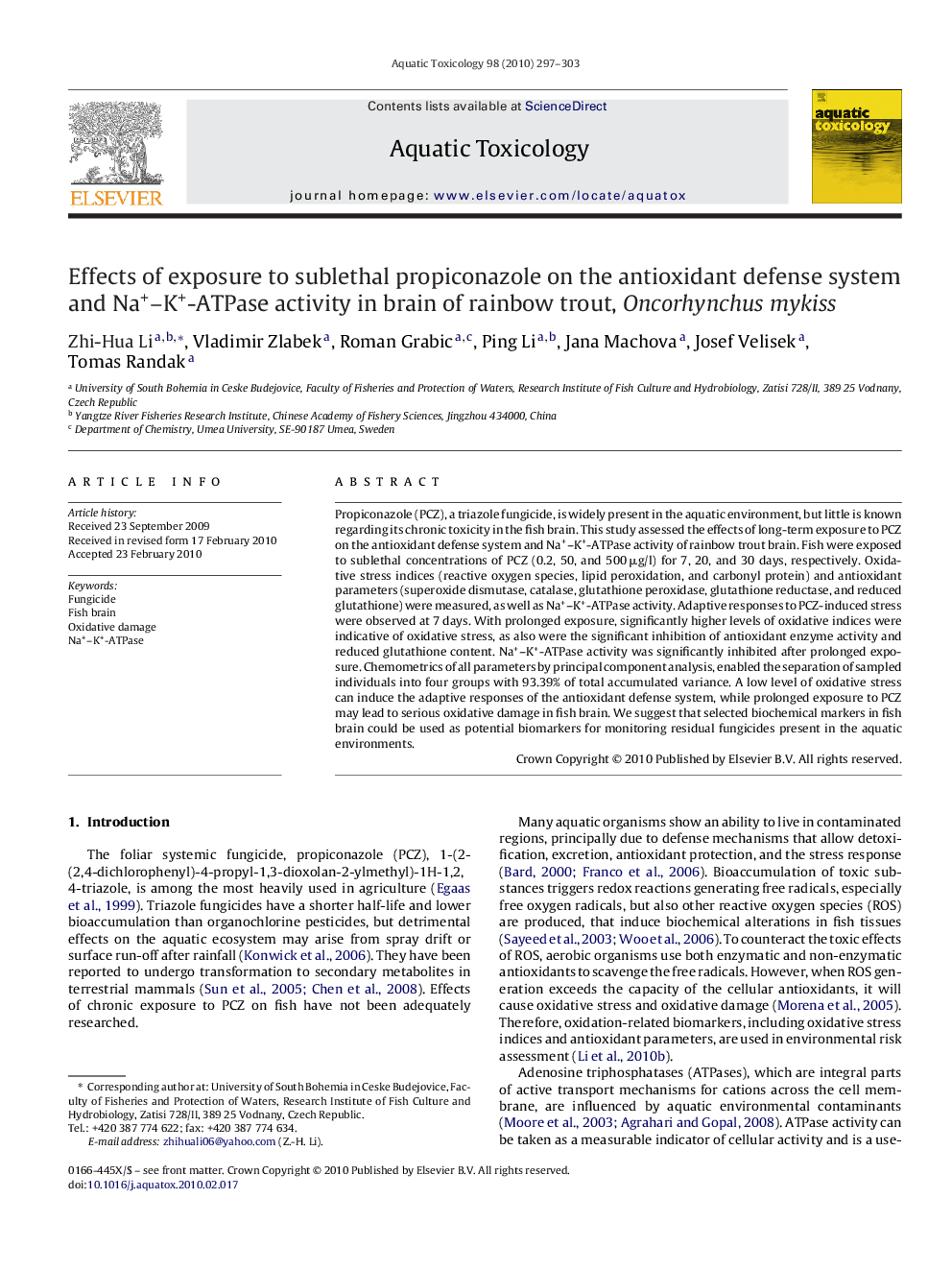| Article ID | Journal | Published Year | Pages | File Type |
|---|---|---|---|---|
| 4530197 | Aquatic Toxicology | 2010 | 7 Pages |
Propiconazole (PCZ), a triazole fungicide, is widely present in the aquatic environment, but little is known regarding its chronic toxicity in the fish brain. This study assessed the effects of long-term exposure to PCZ on the antioxidant defense system and Na+–K+-ATPase activity of rainbow trout brain. Fish were exposed to sublethal concentrations of PCZ (0.2, 50, and 500 μg/l) for 7, 20, and 30 days, respectively. Oxidative stress indices (reactive oxygen species, lipid peroxidation, and carbonyl protein) and antioxidant parameters (superoxide dismutase, catalase, glutathione peroxidase, glutathione reductase, and reduced glutathione) were measured, as well as Na+–K+-ATPase activity. Adaptive responses to PCZ-induced stress were observed at 7 days. With prolonged exposure, significantly higher levels of oxidative indices were indicative of oxidative stress, as also were the significant inhibition of antioxidant enzyme activity and reduced glutathione content. Na+–K+-ATPase activity was significantly inhibited after prolonged exposure. Chemometrics of all parameters by principal component analysis, enabled the separation of sampled individuals into four groups with 93.39% of total accumulated variance. A low level of oxidative stress can induce the adaptive responses of the antioxidant defense system, while prolonged exposure to PCZ may lead to serious oxidative damage in fish brain. We suggest that selected biochemical markers in fish brain could be used as potential biomarkers for monitoring residual fungicides present in the aquatic environments.
